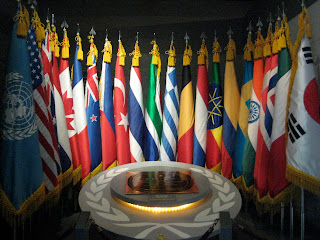Apple and Samsung have been fighting for quite some time and we're finally getting to see the results of their battles. Samsung's loss against Apple was a huge blow to a company that was going nowhere but up. Samsung must now pay Apple billions of dollars and change the way it operates. Meanwhile, Apple is rolling in the dough.
I agree that Samsung was copying Apple, but that's just because Apple created the standards by which we all use our phones. Like the article said, the steering wheel is round for a reason. Pinching is most intuitive way to Zoom and there's no way getting around it. Apple knew it and that's why they standardized it. It's too bad for Samsung that they can only copy and never innovate.
This law suit means one thing: Samsung will have to try to be better than Apple. They're going to have to get up and get innovating if they want to survive in the mobile market. But hey, it's not always a bad thing to have a setback. Maybe, if they try hard enough, Samsung will surprise everyone, even themselves and create something great.

